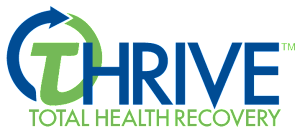When hearing the word “addiction” many people think of illicit drugs, dirty needles, or abuse of pain medications.
All of those can be a part of addiction, but one of the most common addictions is legal, socially acceptable and sometimes hidden for a long time. Alcoholism is an addiction and it is widespread.
The Diagnostic and Statistical Manual of Mental Disorders, 5th Edition (DSM-5) is the handbook used by health care professionals in the United States and much of the world as the authoritative guide to the diagnosis of mental disorders. It uses descriptions, symptoms, and other criteria for diagnosing mental disorders.
The name the DSM-5 assigned to alcohol abuse is now “Alcohol Use Disorder”. It lists eleven criteria for the disorder with 2-3 symptoms in the past year being classified as mild disorder, 4-5 criteria met qualifies as a moderate diagnosis, and 6 or more ranks as a severe disorder.
 Those criteria as listed in the DSM-5 for Alcohol Use Disorder are:
Those criteria as listed in the DSM-5 for Alcohol Use Disorder are:
- Alcohol often taken in larger amounts or over a longer period than was intended.
- A persistent desire or unsuccessful effort to cut down or control alcohol use.
- A great deal of time spent in activities necessary to obtain alcohol, use alcohol, or recover from its effects.
- Craving or strong desire or urge to use alcohol.
- Failure to fulfill major role obligations at work, school, or home due to alcohol use.
- Continued use of alcohol despite having persistent or recurrent social or interpersonal problems caused or exacerbated by the effects of alcohol.
- Important social, occupational or recreational activities are given up or reduced because of alcohol use.
- Recurrent alcohol use in situations in which it is physically hazardous.
- Continued alcohol use despite knowledge of having a persistent or recurrent physical or psychological problem that is likely to have been caused or exacerbated by alcohol.
- Tolerance, as defined by either of the following:
- A need for markedly increased amounts of alcohol to achieve intoxication or desired effect
- A markedly diminished effect with the continued use of the same amount of alcohol.
- Withdrawal or taking alcohol to relieve withdrawal.
For those with long-term alcohol use, quitting cold turkey can lead to severe physical symptoms or even death as the body adjusts to the absence of the depressive substance. Alcohol withdrawal symptoms can include: increased heart rate, sweating, nausea, headache, anxiety, tremors, high-blood pressure, insomnia, nightmares, confusion and irritability.
 The most severe type of alcohol withdrawal is called delirium tremens (DT).
The most severe type of alcohol withdrawal is called delirium tremens (DT).
Its symptoms may include: severe confusion and agitation, seizures, fever, auditory or visual hallucinations, and tactile hallucinations such as feeling itching, burning or numbness that is not actually occurring. These symptoms constitute a medical emergency and require immediate medical care. These reactions can lead to death if not properly treated.
At Gulf Breeze Recovery we offer safe, medical detoxification where our guests are monitored 24-hours a day by our professional medical staff. Following detoxification our holistic treatment program helps our guests reclaim their health and overcome addiction.
If you or someone you care about, has an ongoing history of substance use and/or relapse, contact us at Gulf Breeze Recovery or call: (855) 433-4480 to speak to an addiction expert to learn more about our program that has helped so many people overcome their addiction and embrace life.
We help people not just to survive, but to THRIVE!
 About Gulf Breeze Recovery:
About Gulf Breeze Recovery:
Gulf Breeze Recovery, unlike other treatment centers in Florida, is a non 12 step holistic drug and alcohol rehab that is changing the future of addiction treatment with their THRIVE® (Total Health Recovery) program focused on overcoming chronic relapse.
Gulf Breeze Recovery’s THRIVE® program is a non 12-step approach designed for those who are looking for a drug and alcohol treatment program to produce a different and positive result.
This non-12 step program allows you to drive beyond your addictions and promotes a new outlook on life.
We are licensed by the Florida Department of Children and Families, and our last audit scored 99.7! Also, we are gold certified by the Joint Commission.
Want to read more about Gulf Breeze Recovery's non 12 step, holistic drug and alcohol rehab? Check out some of our latest posts:
Researchers Identify Role of Key Brain Signaling Protein in Alcohol Use Disorder
January 29, 2021College Students Who Returned Home Due to Pandemic Drinking Less
January 29, 2021Overdose Deaths Soar in the Midst of a Pandemic
January 27, 2021Alcoholism Today in Seniors and Younger Generations
January 20, 2021
End Chronic Relapse and Start a New Life!
At Gulf Breeze Recovery we don’t want you to have just a great recovery, we want you to have a great life!
Contact Us, or Call: (855) 433-4480
Share this Post

